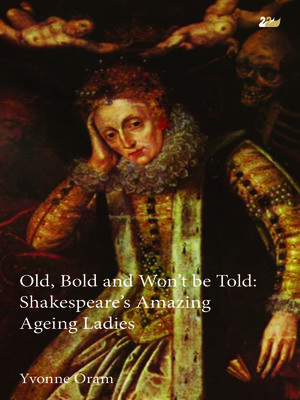
Sign up to save your library
With an OverDrive account, you can save your favorite libraries for at-a-glance information about availability. Find out more about OverDrive accounts.
Find this title in Libby, the library reading app by OverDrive.



Search for a digital library with this title
Title found at these libraries:
| Library Name | Distance |
|---|---|
| Loading... |
Old women in Early Modern plays are stereotypically presented as ugly, randy, mouthy, mad. So Shakespeare is rare among dramatists of the day for his lively and empowering depictions of ageing ladies. This well-researched, accessible book looks at the way his old women subvert the stereotypes. There is particular focus on Paulina in The Winter's Tale as a uniquely powerful old woman.
|Thoroughly researched and accessible, 'Old, Bold and Won't Be Told' considers closely Shakespeare's development of his older female characters, who defy conventional stereotypes and act with power, influence and creativity. Shakespeare refers to standard characteristics of the ageing woman – her loss of looks, 'inappropriate' sexuality, flouting of male governance and inability to hold her tongue – but, unlike his contemporaries, also further develops and celebrates the strength and importance of this figure.
Shakespeare's most notable older woman is Paulina in 'The Winter's Tale', the only older woman in early modern drama who is still vocal and powerful at the end of a play – a play which owes its conclusion to her directorial creativity. Through her, Shakespeare highlights the importance of the old woman to family and society. The study also explores other rich examples of Shakespeare's developed older women, including Queen Katherine ('Henry VIII'), Volumnia ('Coriolanus') and Queen Gertrude ('Hamlet').







